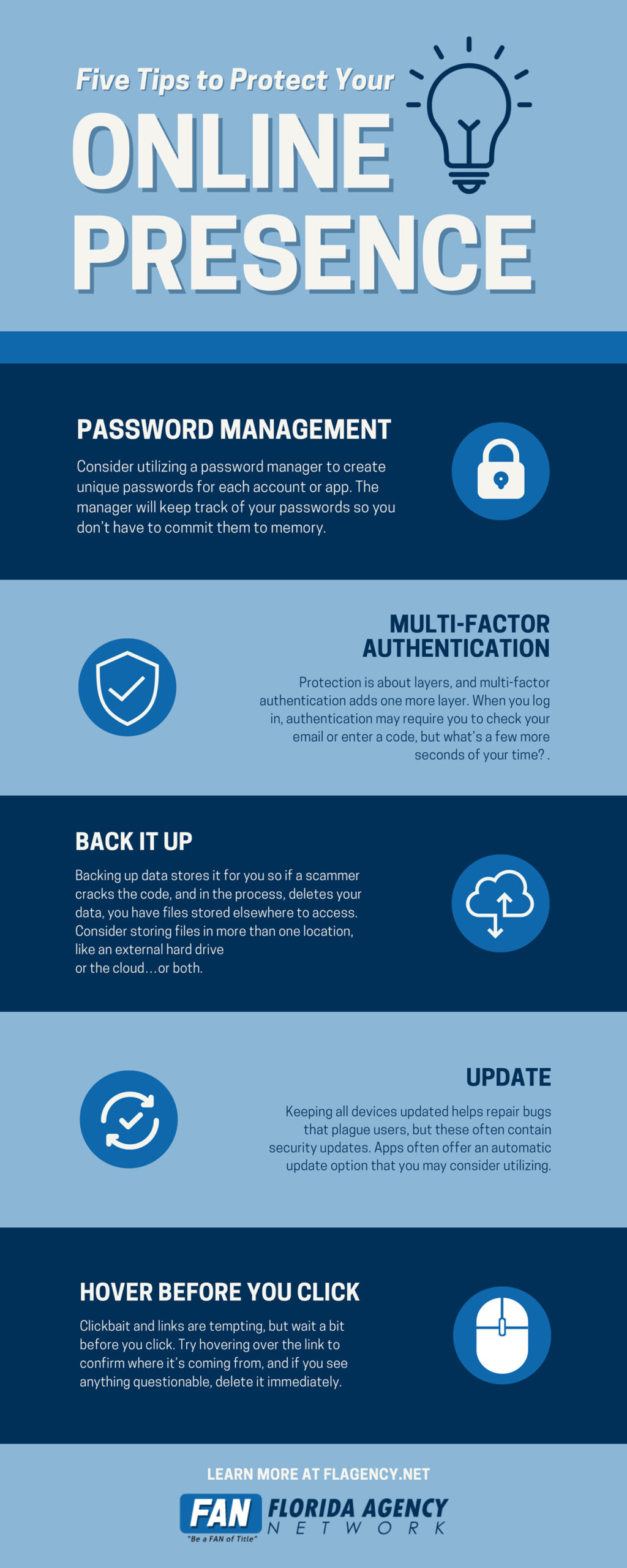
 The real estate market is ever-evolving, and staying ahead is crucial for real estate agents looking to thrive. As we step into 2024, the competition is tougher than ever. Here are three essential tips to help real estate agents stay relevant and successful in today's challenging market.
The real estate market is ever-evolving, and staying ahead is crucial for real estate agents looking to thrive. As we step into 2024, the competition is tougher than ever. Here are three essential tips to help real estate agents stay relevant and successful in today's challenging market.
Reflecting on the past is a key step towards future success. Before planning for the future, review the opportunities you might have missed. What properties slipped through your fingers? What strategies did you overlook? This retrospection isn't just about pondering what could have been; it's about preparing to capitalize on similar opportunities in the coming year. Analyzing your competitors' performances can also provide invaluable insights. What worked for them? How did their strategies differ from yours? Learning from your and others' experiences in 2023 can set a solid foundation for a more successful 2024.
Social media is the linchpin of effective marketing and client engagement in the digital age, so harnessing the power of these platforms is crucial. Remember that social media isn't just a tool to showcase properties; it's a medium to demonstrate your expertise, share market insights, and build a personal brand that resonates with potential clients. Platforms like Instagram, Facebook, and LinkedIn can serve as stages to showcase your successes, offer valuable informational content, and engage directly with your audience.
While zeroing in on hot leads is a common strategy, casting a wider net in a tough market is essential. Nurturing your entire network, including those with a passing interest in the real estate market, is vital to building relationships that can benefit you. Offering them information and insights now can sow the seeds of a future client relationship tomorrow. Maintaining an inclusive approach increases your chances of finding leads in unexpected places.
Staying relevant in the real estate market in 2024 requires learning from the past, leveraging current technology, and maintaining a broad, inclusive approach to client engagement. By following these tips, real estate agents can navigate any market.
 There are a lot of sophisticated nuances around the use of social media as a marketing tool, and while big corporations employ entire departments of experts to explore those nuances, small businesses or solo practitioners – for instance real estate agents – often lack the bandwidth.
There are a lot of sophisticated nuances around the use of social media as a marketing tool, and while big corporations employ entire departments of experts to explore those nuances, small businesses or solo practitioners – for instance real estate agents – often lack the bandwidth.
And yet, social media is the lifeblood of the marketing strategy for most agents. It’s a necessary ingredient to sales, especially during quiet markets.
However, there are some cardinal rules of social media that are totally within anyone’s capability and focusing on the basics can help you build a strong foundation for success.
As you begin to plan your marketing efforts for the coming year, here are some basic rules for crafting a social media presence.
Social media platforms are great for posting and updating your fan base but having a website to direct clients to for more information positions you at a higher professional level and increases your credibility.
Your website can be simple, providing basic information about you and your team, but it can also afford a great opportunity for posting more in-depth educational materials about real estate transactions, as well as brief blogs about what is happening in your local market.
And most importantly, remember to keep your personal social media sites for friends and create business accounts for your real estate content. For some social media platforms, business accounts are required, so make sure your accounts are in line with the rules.
“Let’s do some social media,” is a not a strategy, but quite frankly, it’s how a lot of us approach this very important marketing tool. To be successful on social media, the first rule is to create a plan for the year and stick to it. Consistency is one of the most important rules of success. Here are a few things to consider when creating your plan:
Keeping your audience in mind, create content that not only promotes you and your listings, but also connects you to the community in which you live and work and builds good will with your audience. For instance:
In all your messaging, make sure you make it about your clients, your team, and your service providers and not about your successes. When your messaging highlights everyone else’s accomplishments, you build a stronger community of followers who will in turn, want to highlight and support your successes.
And while it’s OK to share some personal information to help your clients to get to know you better, make sure you aren’t straying from the core message, which is your proficiency as a real estate agent and your desire to educate and assist homebuyers and sellers.
At Florida Agency Network (FAN), we have formed a strategic alliance amongst members and third-party providers to better serve our customers. Contact us today to learn how our customized solutions protect and streamline the closing experience for you and your clients.
 We’ve talked here before about the huge potential impact of Chat GPT. It’s since become the talk of our industry (and every other industry for that matter). The conversation has now shifted to “how can we best use Chat GPT in our business?
We’ve talked here before about the huge potential impact of Chat GPT. It’s since become the talk of our industry (and every other industry for that matter). The conversation has now shifted to “how can we best use Chat GPT in our business?
Of course, Chat GPT was quite the popular topic at our recent visit to the National Settlement Services Summit in early June. And it reminded us that the title industry has come to rely on technology more than ever. That’s a far cry from where we were not too long ago! But the days of paper files, faxes and couriers are now behind us. It’s no longer a question of whether the best title agents are automated. Instead, it’s “are they automated effectively?”
If anything, we’ve long believed that “new” technology and “effective” technology don’t always have to be the same thing. New tech can be effective, but so can previously existing technology, used properly. The real trick is determining whether a technological investment addresses a real need in one’s operation, and whether it cost-effectively performs what it was advertised to be capable of. Our title agencies, for example, make use of a great AI technology that came on the scene two or three years ago, called Alanna. Alanna is an AI technology that has conversations—not just blasts or broadcasts—with customers, which allows our team to address more complex challenges or move their closings along the line more efficiently. Alanna is what you might call a “sexy” technology.
And yet, it takes more than the shiny new technology to create a world-class operation. We’ve long been focused on using scalable resources at FAN—which has been to our great benefit throughout this ever-changing market cycle. We were among the first title firms to make use of centralized resources and eliminate true redundancies. For some of those efficiencies, we used new tech. For others, we used proprietary or existing tech. But just as important to the centralized resources approach is the team we built along with their skills, experience and talent. Today, for example, PDS isn’t just our top flight IT team. It has also become one of the top managed IT services and cyber defense firms in the industry!
It was quite interesting to see how other title firms are combining strategy, technology and other resources for improved efficiency and performance. In talking to a number of other professionals at NS3, we were amazed at how far the title industry—perhaps from necessity—has come in just a few short years. We’re seeing agents becoming increasingly open minded when it comes to JVs or affiliated arrangements. We’re seeing more and more new technology coming into the market—and it’s not all growing out of other title agents’ proprietary solutions. All of this is to the betterment of our industry. Mortgage lending is changing. It will be our duty to change and evolve along with our clients.
We at FAN, PDS and the entire FAN family will only continue to look ahead; to ask ourselves “how can we do this better?” And we welcome your ideas, input and questions as well!
 Regarding your business’s website, it’s often said that we must keep our conversions high and bounce rates low, but what does that mean? How do we go about it in the real estate and title industry?
Regarding your business’s website, it’s often said that we must keep our conversions high and bounce rates low, but what does that mean? How do we go about it in the real estate and title industry?
If you’re getting plenty of traffic without a good conversion rate, ask yourself this question: Is your bounce rate too high? Your bounce rate is the percentage of visitors who land on your website, then leave, or “bounce” off, after viewing a single page. For example, if sixty people visit your website and thirty leave after viewing the first page, your bounce rate would be 50%. Google Analytics is the most common helpful tool for gathering site data, including your bounce rate.
Why do visitors bounce? Could it be that they found everything they were looking for and didn’t need to linger? It’s possible but unlikely. Even if they did get the answer they were searching for, you still want to keep them engaged in hopes they’ll check out more of your content. After all, you want their business, right?
It can be tough to determine why visitors leave; is the content irrelevant to what they’re searching for? Are they struggling to navigate your landing page? Are there functionality issues? Whatever the reason for their abrupt departure, the good news is there are strategies to reduce your bounce rate and keep users returning for more.
What’s a “good” bounce rate? This is tricky to pinpoint because it’s relative. It depends on your industry and where your traffic comes from. What matters most is how your bounce rate compares to your industry average. It’s more about understanding what your average means within the context of your business and ensuring that it aligns with your goals. The average real estate and title industry bounce rate hovers around 41%.
Tips for reducing your bounce rate to keep visitors coming back for more:
These are just a few practical tips for engaging visitors to keep them coming back for more. While it might seem overwhelming to consider everything - start small when trying to maximize your website to reduce bounce rates and, in turn, boost conversions. Above all else, know your audience while focusing on the big picture.
 If you somehow haven’t heard about Chat GPT in the past several weeks, take a moment to get caught up. If you don’t even have the time for that, take our word for it. The future is here. Technology has taken a huge leap.
If you somehow haven’t heard about Chat GPT in the past several weeks, take a moment to get caught up. If you don’t even have the time for that, take our word for it. The future is here. Technology has taken a huge leap.
Chat GPT is the AI-driven chat bot the abilities of which are breathtaking. More importantly, it’s a stark example of what it looks like when technology takes a significant step forward. Already, the Internet has exploded with discussion about how businesses can best employ Chat GPT in their own day-to-day operations. And the other big question? What’s coming next?
Chat GPT is a fantastic reminder that innovation—be it in the form of technology or ideas—doesn’t wait for anyone. History barely remembers the holdouts to innovation throughout the years, such as to the adoption of email, smart phones, the Internet, cars….possibly even wheels or sliced bread. And yet, we still see businesses across the title and real estate industry that prefer to do things the way they do because “that’s the way they’ve always done it.” These are the firms that decide new technology is too expensive, or that prefer to communicate with partners and clients the old fashioned ways. That may work for some folks in some situations. But the tide is turning.
Today, lenders are increasingly seeking partners who can help them with RON and digital closing technology. Those capabilities won’t be a “nice-to-have” much longer. Title agencies that aren’t capable of handling a lender’s RON requests will likely pay the price. Now’s the time to partner with a RON-capable firm if you’re not planning to adopt the technology yourself.
REALTORS, borrowers and even sellers are increasingly coming to expect—not just hope for—streamlined and efficient interactions with title companies and closers. Not voice mail tag. Not endless email threads. Modern communications via text and technology on their terms when they want the information. Down the road, this may become a deal breaker as lenders and REALTORS find that “traditional” settlement firms don’t fit their updated models.
The days of ferocious competition between title agencies, and a lack of cooperation, are also slowly fading. Today, the most successful title agents are partnering, collaborating and sharing resources for mutual benefit. In a competitive purchase market where variable costs are the name of the game; the most successful firms will be combining resources to earn their share of the market.
It’s still to be determined what impact Chat GPT will, in and of itself, have on title agents and the greater mortgage and real estate industry. It may go the way of the Beta VCR or Blackberry phone for all we know. But it’s another of history’s reminders that progress waits for no one. And challenging markets always bring about innovation. So whether that’s a modern approach to doing business or the use of new technology, it will be the businesses that heed that warning and ask themselves, earnestly, “what can we do better?” who will come through a challenging market cycle successfully.

Pull up a chair! It’s time to get cybersecurity aware!
October is Cybersecurity Awareness Month, and the crew at Florida Network Agency is on board to share tips that can protect your most important asset…YOU!
Freddy McFraudster would like nothing more than for us to sit back and let him have his way with our money and joy, but with a few tips and the five Cs, we can send him packing with transactions intact and closings complete.
Scammers and fraudsters should be scared of YOU at this point because you are armed and dangerous regarding cybersecurity awareness, but don’t save it all for October. FAN encourages you to remain vigilant year-round. If you have any questions or ideas about cybersecurity, please contact us today.

You may not know it, but your email and web browsing habits may be inadvertently helping the “bad guys” take your personal information, or nonpublic private information (NPPI). Hackers are targeting the real estate industry by utilizing sophisticated techniques and technology to hack into existing email threads and redirect the communication, and far worse, the funds, elsewhere. For real estate agents and their clients, this could mean a big payday for hackers, as well as an enormous headache, and possibly legal action, for agents and their clients.
To protect you and your clients, Aaron M. Davis, CEO of Florida Agency Network (FAN), has compiled a list of actions agents should take to help prevent exposing themselves and their clients to a potential hacking situation.
Hackers have infiltrated our industry and figured out how to create chaos. The most effective way to fight back is to educate yourself and partner with companies that monitor and secure their networks.
Through FAN’s partner, Premier Data Services, agencies within the Network stay up-to-date on compliance initiatives and policies. Each agency hosted by Premier Data Services is SOC 2 compliant, and is audited and verified by a third-party specialist organization, 360Advanced. FAN and its agencies gladly take on the responsibility of not only insuring the title to your home, but also in safeguarding your NPPI.
Recently, the real estate industry has seen a surge in email scams, cyber crime and hackers targeting real estate transactions in an attempt to defraud real estate brokers, lenders, title agencies and more. With each transaction containing sensitive, or nonpublic private information (NPPI), hackers are using technology and techniques to hack into emails and redirect the communication and funds elsewhere.
According to Chris Gianni of Premier Data Services, a network partner with The Florida Agency Network, there are some simple steps you can take to ensure you and your clients don't become victims.
One of the easiest ways to avoid a hacker from taking funds is to simply pay attention. Checking and verifying email sources can take a few minutes, but it could save you and your client from getting into a messy situation.
Gianni says hackers will inject a new reply email address with a domain so similar to the original email, you might not even notice. For example, one of our embodying title agencies encountered a hacker who attempted to duplicate the original email domain, "____@XYZTITLE.com", by using "____@XYZZTITLE.com", with the signature line copied from the actual settlement agent's information. That hacker then attempted to send alternate wiring instructions to the buyer in order to redirect the funds to a fraudulent bank account. However, thanks to some quick thinking and a few minutes verifying the email source and information, the hacker was unsuccessful.
Also, Gianni advises keeping your work email separate from your personal email.
"If you're working in a personal email, let's say, one that you use to sign up for newsletters, online accounts or to download content, a hacker could easily get in and find out you're a real estate agent. From there, he or she will most likely begin monitoring your emails, plan out a way to get a hold of sensitive information and get whatever they want. "
Securing your passwords in another security option Gianni suggest. Using at least 8 letters, including symbols, alternating between upper-case and lower-case letters, and changing passwords regularly is an effective way to secure you and your client's privacy.
The most effective way to avoid being a victim of a cyber crime is to use a secure network or do business with companies that do the same. Embodying agencies within the Florida Agency Network stay up-to-date on compliance codes and policies. Through FAN’s network partner, Premier Data Services, each agency is SOC 1 & SOC 2 compliant and verified by third-party organization, 360Advanced. FAN and its agencies gladly take on the responsibility of not only insuring the title of your home but also safeguarding your NPPI.
Your email is your business’s lifeblood these days. Most clients like the convenience of reading their updates on their home, on their title commitment, and everything else through the convenience of email. And, while they may or may not be following safe procedures, it should be one of your primary concerns.
After all, your clients private information is in those emails. Financial records, account numbers, names, and other forms of sensitive data that shouldn’t be released to the public. What if someone guesses your password or otherwise gets access?
There are some very good tips you can follow to keep your email safe. Most of these solutions are simpler than some recipes you’ve been dying to try or some driving maneuvers you perform daily. If you add these layers of security, you can be confident in your email’s safety.
The first line of defense against people who’d like your information is to create strong, unique, and unguessable passwords to your accounts. Many people tend to use passwords like “pa$$word1! “ when that’s one of the most easily guessed passwords. Below is a list pulled from CBS News of the 10 most common passwords last year:
If you see any of your passwords on here, you should be changing them right now. Those are the most common and they are also the most easily guessed.
Best practice for passwords is to use a random string of letters (upper and lower case), numbers, and symbols of significant length (8 or more characters). It should look more like “1dfGHt#2” than “password.”
If you’re worried about remembering passwords, use a password manager app or sync tool like iCloud Keychain or 1Password. That way, you can generate extremely secure passwords that your phone and/or computer will put in automatically for you while still maintaining the security that you need.
But, a good password isn’t worth anything if you give it away willingly. We’ve all been warned about phishing and spam, and never to click links in emails where you (a) weren’t expecting an email or (b) don’t know the sender. Those maxims are still true but there’s even more to be worried about now.
Phishing is, specifically, the act of imitating a legitimate company’s login screen to get your password. They’re getting good at replicating the official website, too. Here are some common traits of phishing emails, pulled from Microsoft:
Follow this rule of thumb if you don’t want to get caught by a phishing scam: if you receive an email from anyone asking you to login, give them your password, or otherwise give up information, do not use their links or give them that information. Instead, if you’re concerned, go to the website they’re claiming to be from yourself by hand-typing the URL into your browser. That way, you can be sure you’re at the right place.
A problem that faces real estate and title professionals in particular are schemes to get you to transfer funds to a dummy account. The emails in question will look almost exactly like real requests for transfers and if you’re not careful, you might end up sending large amounts of money to fake accounts. When in doubt, verify the transaction request with the sender if you know them, or take steps to find out if they’re legit. Use the tips above to recognize and avoid emails intended to steal passwords or cash and delete the offending messages as soon as you can.
Recovery options are also difficult because if you’re vigilant about setting a good password and avoiding/ignoring phishing but make your security questions easy to answer or easily researched, you’ve done a lot of hard work for nothing. When you set up your security questions, make sure they’re:
If you’ve ever revealed your security question’s answer anywhere, ever, don’t use it. Instead, if you’re given the option, make up your own question about something you don’t tell others, or use the question that you’ve never told anyone. Be aware, too, that some image memes that are commonly shared on Facebook are looking for information commonly found in these questions. If you know you use certain details for these questions, don’t publish them on any social media network or tell anyone you don’t trust.
Some websites (like Google, Facebook, and Twitter) have introduced what’s known as 2-factor authentication. It may sound complex but it’s actually rather simple: they require any password input to have another, smaller password generated by another device. The services I mentioned earlier all use apps on iPhones/Androids to generate the code. If you activate this system, you’ll be asked for a code each time you log in that only you, on your device, can make. That way, even if someone else has your password, the only way anyone’s getting in is if they have your code generator—and they’d need to steal your phone for that.
The only way that you’re going to lose your data and your email account if you use these tips would be to hand it to them directly. Staying safe has never been easier thanks to the basic tools that we’ve been given from the email providers themselves and the basic tips to maintaining a safe, secure email system earlier in the email: make a good password, give it to no one, don’t log in through links but rather through the sites themselves, and just practice good email management, and you’ll be fine!
Follow these basic tips to stay safe through your email:

Please fill out form below